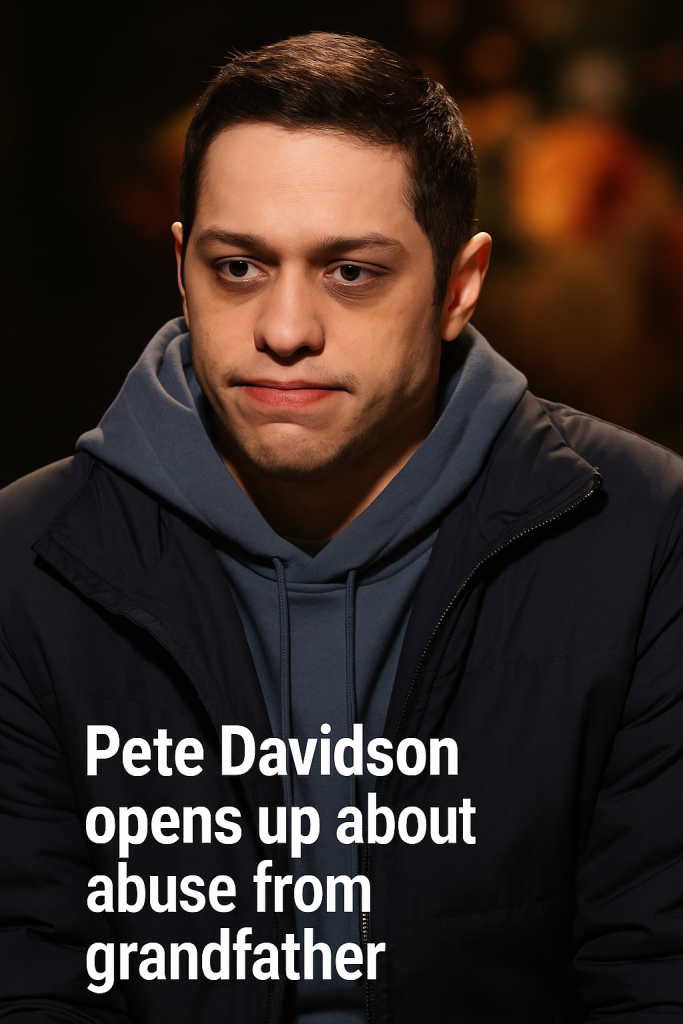In a recent and deeply personal interview, comedian and actor Pete Davidson opened up about the harrowing abuse he endured from his grandfather, describing the complex and often conflicting emotions surrounding his family history and the slow decline of the man responsible for much pain. Davidson’s candid revelations have sparked a broader conversation on social media about whether witnessing a loved one’s “dying slow” is a form of justice or cruelty—raising challenging questions about revenge, forgiveness, and healing.
Davidson, known for his brutally honest comedy and willingness to speak openly about his struggles, did not shy away from recounting the painful legacy left by his grandfather’s abusive behavior. Describing the abuse as a dark shadow over his childhood, Davidson explained that the trauma shaped much of his life and career. Yet, despite the pain inflicted, the actor admitted to experiencing a complicated mix of emotions as he watches his grandfather’s health deteriorate.
“I’m thrilled to see him dying,” Davidson confessed, a stark and raw statement reflecting years of bottled-up anguish. But he also acknowledged the moral ambiguity of deriving a sense of vindication from another person’s suffering, even if that person had caused significant harm. This admission has resonated widely, with many grappling with the same ethical dilemma: Is watching an abuser’s slow decline a form of poetic justice, or is it a perpetuation of cruelty?
Davidson’s story is part of a larger cultural reckoning with how victims of abuse process their trauma and find pathways toward healing. Experts suggest that feelings of revenge or satisfaction at an abuser’s downfall are common emotional responses that vary greatly depending on individual circumstances. Psychologists note that while some may find closure in knowing their abuser is facing consequences, others may experience increased pain, triggering a prolonged cycle of anger and resentment.
The discussion around “dying slow” justice touches on the broader human conflict between justice and mercy. For some, the idea of a slow, painful demise for someone who caused harm epitomizes a just end—an emotional rebalancing after years of suffering. For others, it raises ethical concerns about compassion, forgiveness, and the cost of prolonged suffering not only on the abuser but also on the victims who carry that emotional weight.
Davidson’s willingness to speak openly about such a sensitive subject invites an essential dialogue about the emotional complexities victims face long after abuse has ended. It also highlights the importance of support systems and professional help in navigating these feelings. While revenge might seem satisfying in the short term, lasting healing often requires confronting pain with empathy and seeking healthier ways to move forward.
As this conversation continues to unfold on social media and beyond, Davidson’s story underscores the painful realities behind abuse and the contradictory nature of justice in such intimate and traumatic contexts. His vulnerability sheds light on the difficult balance between seeking retribution and finding peace—a balance that many abuse survivors struggle to achieve.
Ultimately, the debate over “dying slow” justice remains deeply personal and subjective. What is clear is that for survivors like Davidson, the journey toward healing is ongoing, complex, and seldom black and white.



